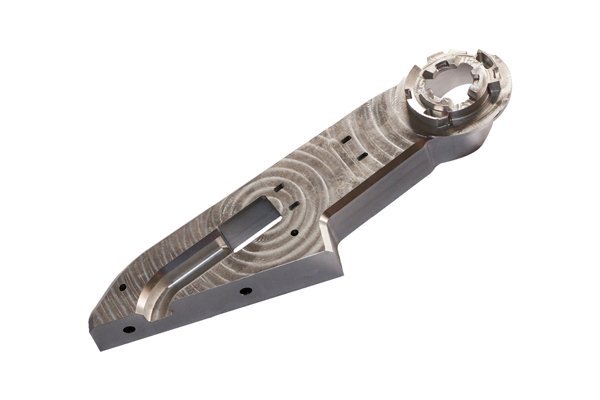Did you know that the global CNC machining market is projected to reach a whopping $100 billion by 2026? This explosive growth is indicative of the increasing reliance on precision engineering in various industries, including automotive, aerospace, medical, and electronics. CNC (Computer Numerical Control) precision parts manufacturing is not just a trend; it’s a crucial element that drives efficiency, accuracy, and innovation across multiple industrial applications.
In this comprehensive blog, we will explore the numerous benefits of CNC precision parts manufacturing, how it works, why it is beneficial for custom industrial applications, and how businesses can leverage this technology to their advantage. Let’s dive right in!
Understanding CNC Precision Parts Manufacturing
CNC precision parts manufacturing is an advanced technology that utilizes computerized controls to operate tools and machinery in the manufacturing process. This technique allows for the creation of highly precise and complex components that are essential for various industrial applications.
The CNC machining process generally involves the following steps:
Key Benefits of CNC Precision Parts Manufacturing
CNC machines are capable of producing highly accurate components with tolerances as tight as ±0.005mm. This level of precision is crucial for industries where even minor deviations can lead to catastrophic failures, such as in aerospace or medical device manufacturing.
CNC machining automates the manufacturing process, which significantly reduces production time. Complex parts that would take hours or even days to create manually can be completed in a fraction of the time. This swift turnaround is essential for businesses that need to stay competitive in fast-paced markets.
CNC technology allows for the easy modification of designs. If an engineer wants to test a new feature or make adjustments to an existing part, reprogramming the CNC machine is often all that’s needed. This versatility is particularly beneficial in industries like automotive where design changes are common.
While the initial investment in CNC machines can be high, the long-term savings are substantial. Higher accuracy means less material waste and fewer rework costs, leading to significant cost reductions over time. Moreover, the ability to produce parts quickly allows for economies of scale.
CNC machining enables the production of intricate geometries that are often impossible to achieve with traditional manufacturing methods. This ability allows for the customization of parts tailored to specific needs, fulfilling the growing demand for personalized and bespoke products in various sectors.
By automating the machining process, CNC technology reduces the need for workers to perform dangerous manual operations. This not only enhances workplace safety but also allows skilled labor to focus on more strategic tasks such as programming and design.
CNC machines can replicate the same part with high precision multiple times without deviation, ensuring that each piece produced is identical to the last. This consistency is vital for quality control and enhances the reliability of products.
CNC precision machining is not limited to a specific type of material. It can work with various materials, including metals, plastics, and composites, expanding its applicability across different industries. This adaptability enables organizations to choose materials that best meet performance requirements and cost considerations.
Applications of CNC Precision Parts Manufacturing
CNC precision parts manufacturing is transformative across multiple sectors. Here are some applications that illustrate its importance:
Aerospace Industry
The aerospace industry demands the highest levels of precision, where CNC machining has become a standard. It is used to produce components for aircraft, drones, and spacecraft. The ability to manufacture parts that meet stringent certifications is critical in this field.
Medical Devices
In the medical field, CNC precision machining produces components such as surgical instruments, implants, and diagnostic devices. Given the inherently high stakes involved, the accuracy and customization capabilities of CNC machining are of utmost importance.
Automotive Manufacturing
CNC precision parts are prevalent in the automotive industry to create intricate components such as engine blocks, gears, and brackets. Manufacturers can adapt quickly to changing designs thanks to the flexibility of CNC machining.

Electronics
CNC machining is utilized in the production of electronic housings, connectors, and circuit boards. The precision required in this sector ensures proper function and integration of electronic components.
Industrial Equipment
Custom machinery components, tools, and fixtures produced using CNC precision parts manufacturing enhance efficiency and performance in manufacturing processes.
Key Challenges in CNC Precision Parts Manufacturing
While CNC precision parts manufacturing offers myriad benefits, it also comes with its challenges. Understanding these challenges can help businesses navigate them effectively:
Initial Investment Costs
The cost of acquiring CNC technology can be prohibitive for small businesses. However, many companies view it as a long-term investment that eventually pays off.
Maintenance and Downtime
CNC machines require regular maintenance to prevent downtime. Failure to uphold maintenance schedules can lead to significant interruptions in production.
Skill Requirements
Operating CNC machines requires a specific skill set. Advanced knowledge in programming and design is necessary to utilize CNC technology fully. Companies must invest in training their workforce to adapt to these changes.
Solutions to Overcome Challenges
Phased Investment Plans
For businesses concerned about the initial costs of CNC machines, adopting a phased investment plan is a practical solution. Gradually integrating CNC technology can spread out costs without disrupting current operations.
Comprehensive Maintenance Programs
Implementing a regular maintenance schedule can reduce long-term downtime. Predictive maintenance using data analytics can also identify potential issues before they become problematic.
Continuous Training
Investing in employee training not only optimizes machine usage but also enhances safety and quality. Collaborating with educational institutions or training programs can provide staff with the necessary skills.
Future Trends in CNC Precision Parts Manufacturing
As technology continues to evolve, CNC precision parts manufacturing is also expected to undergo transformative changes. Key trends to watch in the coming years include:
Integration of AI and Machine Learning
Artificial intelligence-driven CNC systems can adapt in real time, improving accuracy and productivity. Machine learning algorithms can optimize production processes and enhance quality control.
Internet of Things (IoT)
Integrating IoT devices with CNC machines can facilitate real-time monitoring and data collection. This connectivity can lead to improved efficiencies and preventative maintenance solutions.
Additive Manufacturing Synergy
The integration of CNC machining and additive manufacturing (3D printing) will enable the creation of parts with complex structures and designs that are efficient and cost-effective.
CNC precision parts manufacturing is not merely a technology trend; it is a game-changer for various industrial applications. With unmatched accuracy, efficiency, and flexibility, CNC technology facilitates innovative solutions that meet the ever-evolving demands of modern industries.
As automation becomes increasingly prominent, understanding the benefits and challenges of CNC precision parts manufacturing is essential for business leaders seeking to enhance their operations and maintain competitive advantages.
In summary, businesses that adopt CNC technology today position themselves to thrive in the future landscape of manufacturing. Embracing these advancements is not just wise; it is a strategic necessity. The implications of these changes are not just about current productivity but about shaping a sustainable, innovative future.
Why This Blog Matters
The importance of CNC precision parts manufacturing cannot be overstated. As this technology continues to evolve, it presents unprecedented opportunities for innovation and growth in various sectors. Whether you are a business owner, engineer, or enthusiast, understanding its benefits, challenges, and trends will enable you to navigate the intricate landscape of modern manufacturing effectively. Investing time in learning about CNC precision parts today ensures you remain future-ready in an increasingly competitive marketplace.
If you’re considering how to optimize your manufacturing processes, explore CNC machining, and derive significant benefits. The future of manufacturing lies in precision, and CNC is at the forefront of this revolution.






